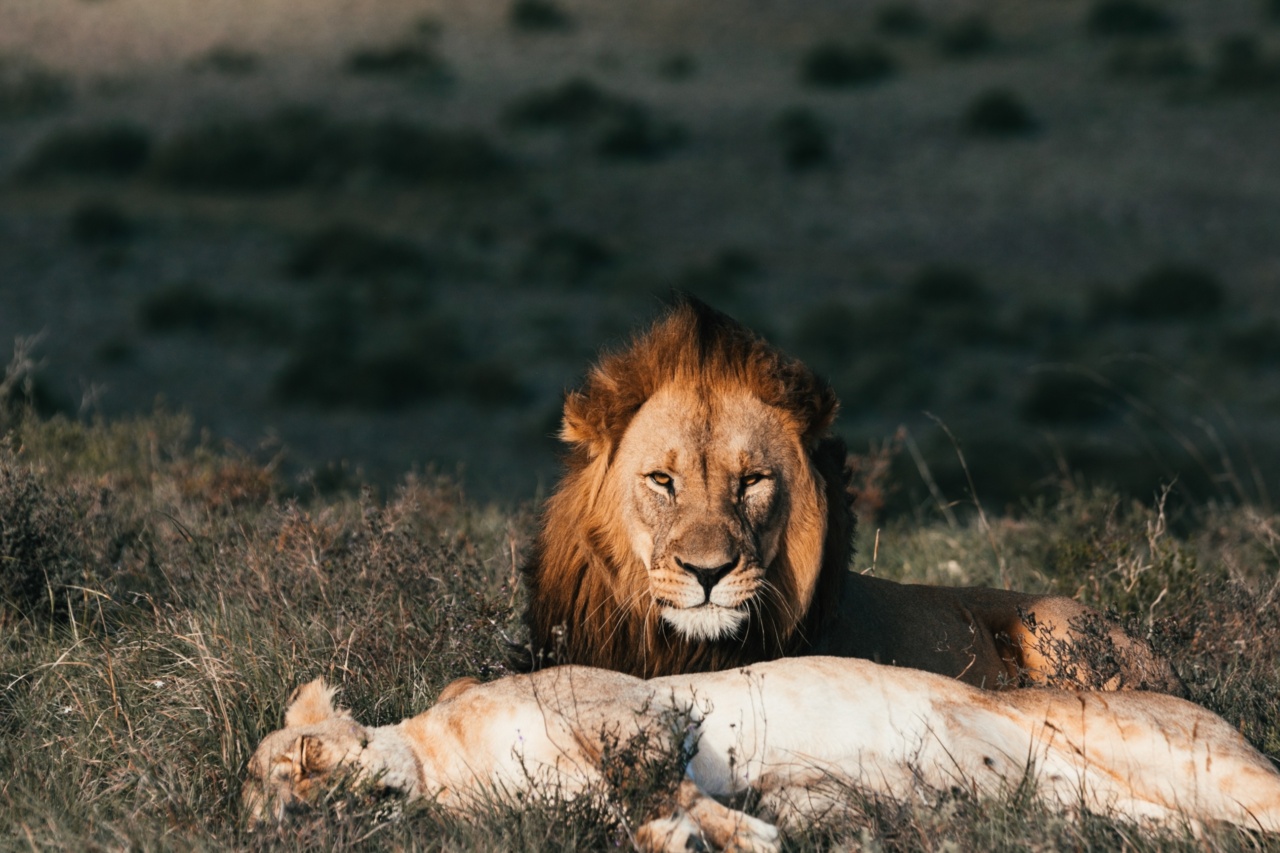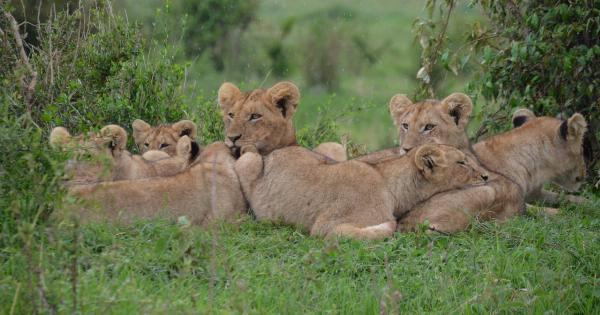It was a sad day for a wildlife park in South Africa when they decided to euthanize two of their lions. The lions, who have been living together for years, were plagued by a severe infestation of insects.
The insects, known as ticks and mites, have been feeding off their blood to the point where it became unbearable for the lions. Despite numerous treatments and efforts from the park staff, the infestation persisted, so the difficult decision to put them to sleep was made.
Background Information: The Kruger National Park
The wildlife park in question is the Kruger National Park in South Africa.
It is one of the largest game reserves in Africa, with an area of 19,485 square kilometers and a wide variety of wildlife, including the Big Five game animals – Lion, Leopard, Rhino, Elephant, and Buffalo.
The park is situated in the northeastern part of South Africa, bordering Mozambique in the east and Zimbabwe in the north.
It was first established as a game reserve in 1898, and has since grown to become one of the most popular tourist destinations on the continent.
Lions: The King of the Beasts
The lion, also known as the king of the beasts, is an apex predator found in sub-Saharan Africa and some parts of Asia. They are social animals and live in family groups known as prides.
Males are distinguished by their mane, which is used to attract females and protect themselves during fights.
Lions are a popular attraction in many wildlife parks around the world due to their majestic appearance and regal nature. They are also featured in many cultural and religious practices, including heraldry and mythology.
However, despite their popularity, they are considered a vulnerable species by the International Union for Conservation of Nature (IUCN) due to habitat loss and human encroachment.
The Insect Infestation
The lions at Kruger National Park were facing a severe infestation of ticks and mites. These parasites attach themselves to the lion’s skin, feed on their blood and reproduce rapidly, leading to a host of problems for the lion.
The infestation results in severe itching, which leads to the lions scratching and biting themselves to alleviate the itchiness. This leads to open sores on the skin, which can become infected and lead to further health problems.
Additionally, the constant scratching and biting can cause hair loss, making the lion look unsightly and vulnerable.
The Efforts to Treat the Lions
The park staff at Kruger National Park made several attempts to help the lions overcome the infestation. They used various treatments, including spraying the lions with insecticides and applying topical creams.
However, the infestation persisted despite these efforts.
The staff also tried removing the lions from their natural habitat and placing them in an enclosed area, hoping that the insects would not follow. However, this approach did not work, and the lions continued to be plagued by the infestation.
The Decision to Euthanize the Lions
The decision to euthanize the lions was not an easy one. The park staff weighed the risks and benefits of the treatment and concluded that the most humane course of action was to put the lions to sleep.
This decision was made after several consultations with experts in the field and after considering various options.
The lions were put to sleep in a quiet and peaceful manner, surrounded by the staff who cared for them for years. It was a difficult day for everyone involved, but ultimately it was the best decision for the welfare of the lions.
The Importance of Managing Insect Infestations in Wildlife Parks
The case of the lions at Kruger National Park is a reminder of the importance of managing insect infestations in wildlife parks. Many animals in parks and reserves are susceptible to insect infestations, which can be fatal if not managed properly.
Parks and reserves need to invest in proper insect control measures and seek the help of experts when necessary.
Additionally, parks and reserves need to create awareness among visitors about the importance of proper insect control measures.
Visitors should be educated on the risks associated with insects and the importance of taking precautions when visiting wildlife parks. This way, they can help minimize the risk of insects spreading from one animal to another.
The Legacy of the Lions
The passing of the lions at Kruger National Park is a reminder of the fragile nature of our ecosystem. It is a reminder that we need to do more to protect our wildlife and ensure their survival.
The legacy of the lions at Kruger National Park will not be forgotten, and their passing will serve as a reminder of the importance of proper wildlife management.
Ultimately, it is up to all of us to ensure that the majestic animals that call our planet home are protected and allowed to thrive.
We owe it to ourselves, and to future generations, to do everything in our power to preserve our wildlife and the ecosystems they inhabit.
Conclusion
The passing of the lions at Kruger National Park is a tragic reminder of the fragility of life and the importance of proper wildlife management. However, it is also a reminder of the majesty of these creatures and the impact they have on our planet.
As we move forward, it is our responsibility to ensure that our wildlife is protected and allowed to thrive. We owe it to ourselves, and to future generations, to do everything in our power to preserve our wildlife and the ecosystems they inhabit.






























